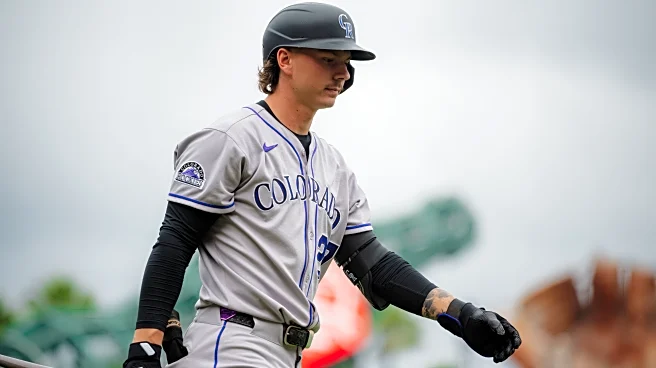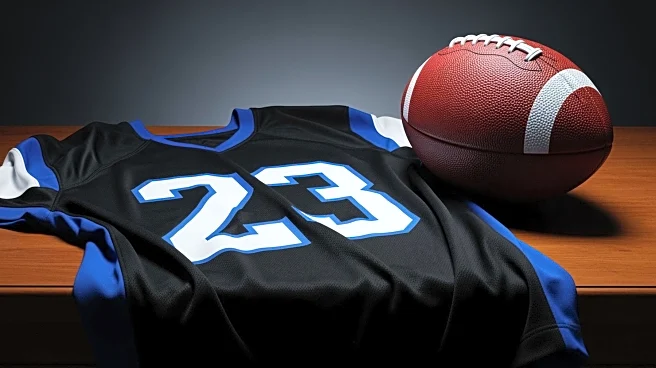Let’s not beat around the bush. The 2025 Colorado Rockies were not a good baseball team. Last year, I had the misfortune of compiling the many dubious records and statistical abnormalities that the Rockies experienced. Once again, I am tasked with sifting through the muck of history that was made this season. I tried my best to save things as they happened, and I express my thanks to the many media pundits who provided these nuggets throughout the year on social media.
So let’s get into it, friends.
Record-setting record
A glimpse at the Rockies’ 43-119 record is enough to summarize their futility this season. For a while there, they were on pace to post the worst record in MLB history and later just the Modern Era. They may have avoided the mark set by the 2024 Chicago White Sox, but their 119 losses marked just the fourth time in 125 years that a team lost that many games.
However, the Rockies still set records with that record. They have the most losses by a National League team in the Divisional Era (since 1969) and the second-most in NL history since 1901, just one loss behind the 1963 New York Mets.
After starting the season 1-1, the Rockies lost their third game of the season, dropping them below .500 and putting them in last place in the NL West. They would never again come close to reaching .500 and spent the rest of the season firmly in last place. It’s unclear if their days in last were some sort of record, but it certainly felt like it should be.
They ended up finishing 50 games behind the Los Angeles Dodgers, surpassing the franchise record of 43 games set back in 2022.
However, the talk of the town was the consistent reminder that the Rockies were entering unfamiliar territory with their win-loss record.
On April 24, the Rockies were 4-20. Only four teams since 1901 have had a start to the season with more losses over their first 24 games: The 1988 Orioles (1-23), the 2003 Tigers (3-21), the 2022 Reds (3-21), and the 2024 White Sox (3-21).
Following their 21st loss in their next game, they joined the 2022 Cincinnati Reds (3-22) as the only clubs in NL history to lose at least 21 of their first 25 games of the season.
They went on to tie the 1952 Pittsburgh Pirates for the second-worst 36-game starts since 1900 (6-30), sitting just behind the 1988 Baltimore Orioles (5-31).
A loss on May 14 gave the Rockies their 36th loss in the first 43 games, setting a Modern Era record and joining the likes of the 1876 Red Stockings, 1884 K.C. Unions, and 1895 Louisville Colonels in MLB history.
Things continued to get worse as they eventually set a new MLB record on June 1, becoming the first team to lose 50 games before they won 10. A few days prior, they had already set the Modern Era record for most games holding onto a single-digit win total.
They would set the most losses through 92 games and then entered the All-Star Break with a 22-74 record, which was, you guessed it, the most losses (since 1933) before the All-Star break.
Colorado’s 24-76 record on July 21 marked the worst 100-game mark since 1916, when the Philadelphia A’s went 20-80 and were tied for the seventh-worst stretch in MLB history.
Needless to say, this team had a hard time winning games because the play on the field was equally bad from a historical standpoint.
Run Differential
A main issue for the Rockeis in 2025 was two-fold: they couldn’t score runs, and they couldn’t prevent runs.
The Rockies set a Modern Era record with a -424 run differential. The previous modern record for worst run differential was -349, by the 1932 Boston Red Sox. The 2024 White Sox had a -306 run differential last season.
The sad part is that the Rockies rushed past those other teams in early and mid-August, with a month of play still to go. Colorado is the only 21st-century team to join the -400 club, joining six other teams that existed in the 19th century.
During a doubleheader against the Detroit Tigers, the Rockies recorded a -18 run differential, tying a franchise record for the largest negative run differential in a doubleheader sweep in franchise history.
So let’s look deeper into the problems the team had on both sides of the ball.
Pitching Woes
The woes begin with the starting rotation. The 6.65 ERA posted by the rotation is the highest in baseball history in the Modern Era, narrowly edging out the 1996 Detroit Tigers. The 5.99 ERA by the entire pitching staff ranks ninth in baseball history.
During a six-game homestand in early August, the Rockies’ pitching gave up 75 runs, tied for the most ever in a six-game span. The 21 home runs they surrendered were the most in any six-game stretch in franchise history. Back in May, the Rockies had the misfortune of allowing 55 runs over a three-day stretch. That was the most any MLB team had allowed over three days since the St. Louis Browns allowed 56 from June 7-9, 1950 (all at Fenway Park).
In total, pitching allowed 1,021 runs, just seven shy of setting a new franchise record held by the 1999 Rockies (1,028).
Teams like the Toronto Blue Jays obliterated the Rockies’ pitching when they set a modern MLB record with 63 hits in a three-game series. Back in June, the Rockies managed to strike out only one batter against the Arizona Diamondbacks while giving up 14 runs and 21 hits, a first for the 33-year franchise when recording one or less strikeouts.
An inordinate amount of walks and home runs weren’t helped by bad strikeout numbers, leaving the pitching staff at the whims of whatever team they were facing. Opponents had a .307 AVG against, another franchise worst mark.
Offensive Woes
While opponents had field days against the pitching staff, the Rockies’ offense was completely harmless for the vast majority of the season.
The team was shut out 18 times this season, a franchise-worst. Being unable to score was quite prevalent this season, particularly in the early part of the season. The Rockies were shut out in three consecutive games in San Diego, becoming the first team in the Modern Era to score zero runs, have fewer than 10 hits, and strike out at least 30 times.
The Padres handed the Rockies the third-largest shutout loss in MLB history since 1901 when they defeated them 21-0. It was also the largest win in an individual pitcher’s shutout performance since 1901, as Stephen Kolek became the second player to pitch a complete game in a shutout of at least 20 runs in MLB history.
In July, the Baltimore Orioles enjoyed their largest shutout win in franchise history, winning 18-0. Time and time again, the Rockies’ offense couldn’t generate much of anything against teams. Nothing defined the Rockies’ woes better than the 31+ scoreless innings they suffered in April as an offense to set a new franchise record.
They also went 41 consecutive innings without a run at Petco Park against the Padres, which was the longest drought in a single ballpark in franchise history.
The problem was that the Rockies struck out a lot. Over 32 starting pitchers either tied or set career highs for strikeouts in a game. In early April, they struck out 15 times in San Diego, the third time already. Already they had struck out at least times in a game more than 12 different full-seasons of Colorado baseball. The 143 strikeouts in their first 13 games are the third-most to ever start a year in baseball history, behind only San Francisco (2023) and Atlanta (2020). By April 20, they had struck out 212 times, which is the most in baseball history through the first 19 games of any season.
The offense set a franchise low for AVG (.237), OBP (.293), SLG (.386), hits and runs in a full 162-game season (1,282/597), and wRC+ (72). Ryan McMahon even set a new franchise record for a hitless streak when he went 0-for-34 at the plate.
Home/Road
The home/road splits for the Rockies have always been a talking point about the difference in success, but it didn’t matter much this season.
The Rockies scored 228 runs on the road this season, the fewest amount ever scored away from home since 1963. Their record of 18-63 narrowly avoided being the worst road record in modern MLB history by one victory. Their .203 AVG on the road was 14 points lower than their previous franchise-worst .217 AVG in 2024.
Coors Field was no haven either. By July, they had lost 14 consecutive home series (16 dating to last season) and were 8-34, the worst home start in the Modern Era after 42 games, eclipsing the 2003 Tigers (9-33) and 1908 Cardinals (9-33). Their 6.50 ERA at home was easily the worst in a full season, as were the 529 runs they surrendered.
Conclusion
There were so many more records and numbers that we could go into, and I encourage you to point out any more that I may have missed in the comments below. A lot of records were franchise worsts or in the neighborhood as well as some of the worst things in MLB history. There were a few positive highlights and historical means this season, but the entirety of the 2025 season overshadows any sort of positive inclination. This team was historically awful in all aspects. It was an embarrassment for the organization, for the fans, and for the sport itself.
The Rockies have a lot of work to do, because I would very much like not to have to write anything of this nature next year.
Affected by Altitude Episode 181: Well, That Sure Was Painful | Rocky Mountain Rooftop
Evan Lang and I break down what went wrong with the 2025 Rockies in this post-mortem podcast episode.
Here’s the ’25 Prospect Team of the Year | MLB.com
The Rockies ended up on the list thanks to the acquisition of left-handed pitcher Griffin Herring who came over in the Ryan McMahon trade. He was dominant all season, even with the trade, earning a spot on the list.
Please keep in mind our Purple Row Community Guidelines when you’re commenting. Thanks!















